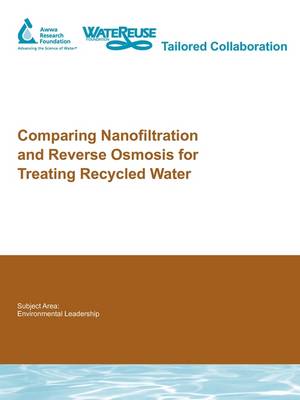Membrane treatment of source water of impaired quality by an integrated membrane system (IMS), such as microfiltration (MF) pretreatment followed by RO, represents the industry standard for drinking water augmentation projects. An alternative IMS involving NF membranes and ULPRO membranes in place of conventional RO membranes provides an opportunity for lower pressure/higher flux operating conditions and higher selectivity (e.g., targeting trace organics over monovalent salts).
The purpose of this study was to explore whether nanofiltration (NF) and ultra-low pressure reverse osmosis (ULPRO) membranes can consistently meet potable water quality requirements with respect to total organic carbon (TOC), total nitrogen, and regulated and unregulated trace organic compounds. The goals were also to determine whether or not operating characteristics of NF and ULPRO membranes (such as flux, fouling/scaling, and cleaning frequencies) are comparable to conventional thin-film composite RO membranes and operating feed pressure requirements are significantly lower than conventional RO.
This work involved the development and validation of a laboratory-scale membrane testing protocol to select viable membranes for pilot- and full-scale operation. This selection protocol balanced operational characteristics with product water quality and allowed for a pre-selection of potentially viable candidate membranes. Membranes considered for selection were characterized as thin-film composite polyamide membranes and included commercially available ULPRO and NF membrane products. Three candidate membranes were selected and each tested using a 70 L/min (18 gpm) membrane pilot skid for at least 1,300 hours on microfiltered feed water at two full-scale facilities. Findings of this study were compiled into a model framework to describe and predict the rejection of organic micropollutants during NF or RO treatment.
- ISBN10 184339216X
- ISBN13 9781843392163
- Publish Date 15 November 2008
- Publish Status Out of Print
- Out of Print 10 June 2016
- Publish Country GB
- Imprint IWA Publishing
- Format Paperback
- Pages 266
- Language English
